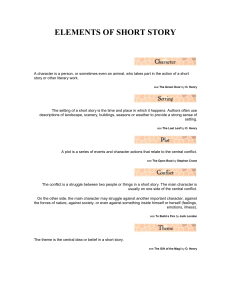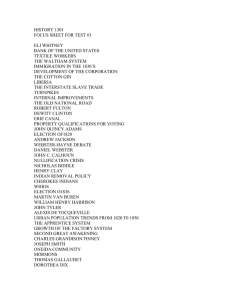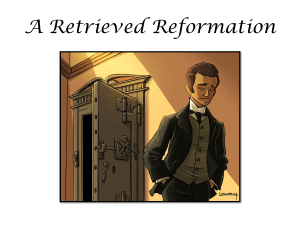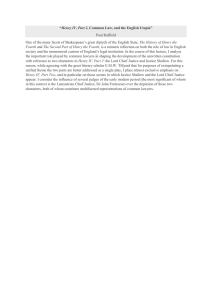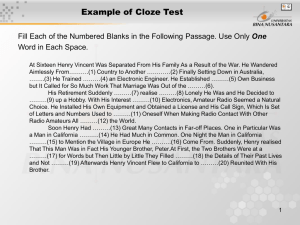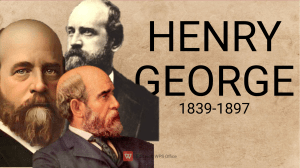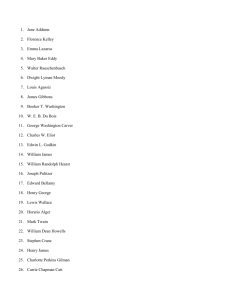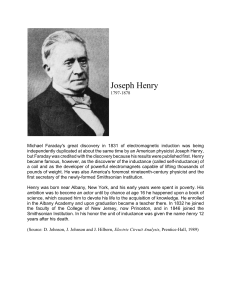Manifest Destiny and Its Legacy
advertisement
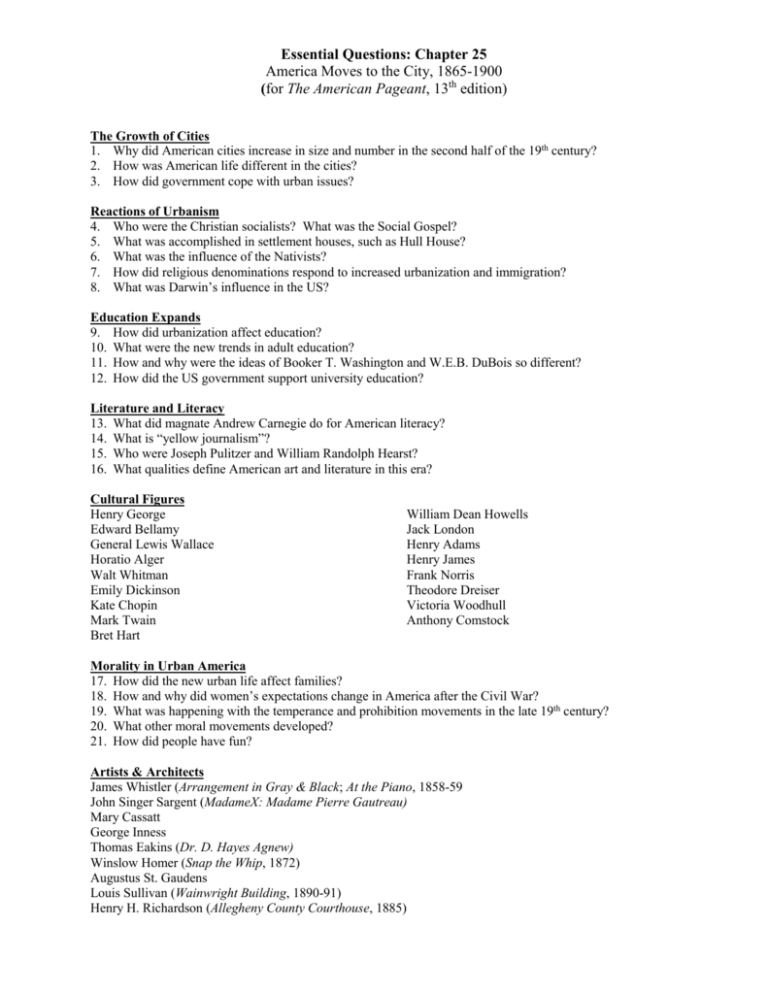
Essential Questions: Chapter 25 America Moves to the City, 1865-1900 (for The American Pageant, 13th edition) The Growth of Cities 1. Why did American cities increase in size and number in the second half of the 19th century? 2. How was American life different in the cities? 3. How did government cope with urban issues? Reactions of Urbanism 4. Who were the Christian socialists? What was the Social Gospel? 5. What was accomplished in settlement houses, such as Hull House? 6. What was the influence of the Nativists? 7. How did religious denominations respond to increased urbanization and immigration? 8. What was Darwin’s influence in the US? Education Expands 9. How did urbanization affect education? 10. What were the new trends in adult education? 11. How and why were the ideas of Booker T. Washington and W.E.B. DuBois so different? 12. How did the US government support university education? Literature and Literacy 13. What did magnate Andrew Carnegie do for American literacy? 14. What is “yellow journalism”? 15. Who were Joseph Pulitzer and William Randolph Hearst? 16. What qualities define American art and literature in this era? Cultural Figures Henry George Edward Bellamy General Lewis Wallace Horatio Alger Walt Whitman Emily Dickinson Kate Chopin Mark Twain Bret Hart William Dean Howells Jack London Henry Adams Henry James Frank Norris Theodore Dreiser Victoria Woodhull Anthony Comstock Morality in Urban America 17. How did the new urban life affect families? 18. How and why did women’s expectations change in America after the Civil War? 19. What was happening with the temperance and prohibition movements in the late 19th century? 20. What other moral movements developed? 21. How did people have fun? Artists & Architects James Whistler (Arrangement in Gray & Black; At the Piano, 1858-59 John Singer Sargent (MadameX: Madame Pierre Gautreau) Mary Cassatt George Inness Thomas Eakins (Dr. D. Hayes Agnew) Winslow Homer (Snap the Whip, 1872) Augustus St. Gaudens Louis Sullivan (Wainwright Building, 1890-91) Henry H. Richardson (Allegheny County Courthouse, 1885)
